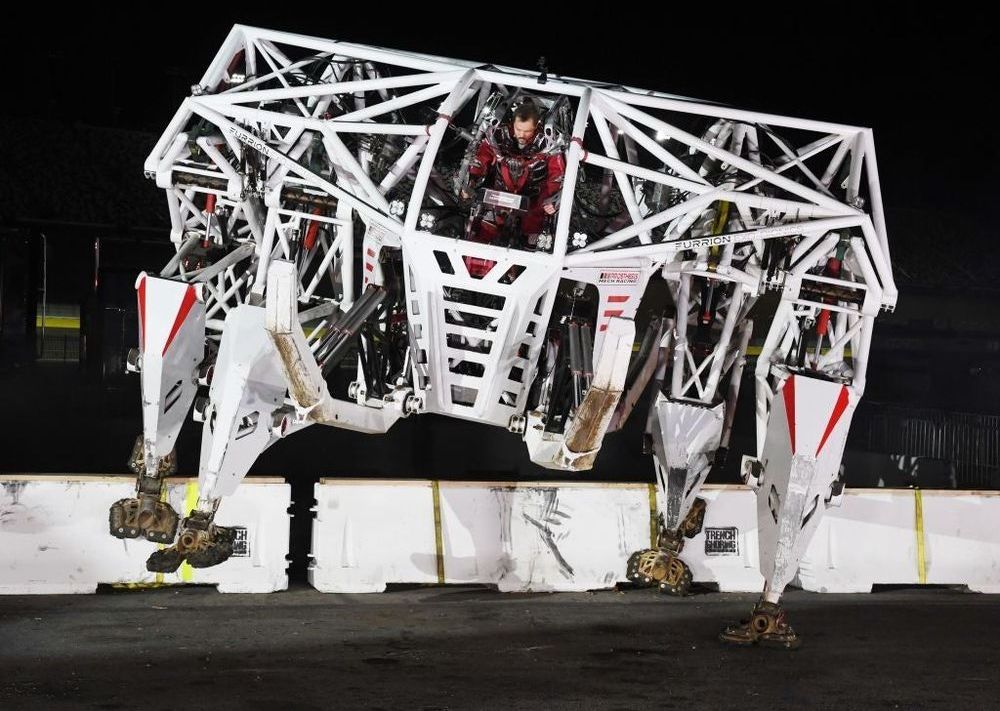Category: health – Page 394

The Top 10 Websites for Science in 2019
Millions of scientific papers are published each year, detailing new discoveries, reviewing the state of research, and opining on important matters. But most people don’t delve into daunting databases to learn the latest science news – who has time for that? Rather, they stay up to date with the help of various news outlets, which dig up and report on the stories that matter. At RealClearScience, we strive to steer you towards the best of these sources and castigate the worst. Near the end of the calendar year, we recognize what we perceive to be the leading websites for science content. Here are our picks for 2019:
Honorable Mentions:
For fantastic coverage of health and medicine, check out STAT.

Researchers develop vaccine that targets Crohn’s disease and obesity
Researchers with INSERM in Paris have detailed their development of a new vaccine strategy that shows promise for treating inflammatory bowel diseases like Crohn’s disease, as well as metabolic conditions like obesity. Key to the vaccine’s potential effectiveness is gut microbiota, abnormalities of which have been linked to a variety of health conditions. The new vaccine works by modifying these bacteria to protect the intestinal wall.
Astrobiology And The Search For Extraterrestrial Like Life
Ira Pastor, ideaXme exponential health ambassador, interviews Dr. Penelope “Penny” Boston, recent Director of NASA’s Astrobiology Institute.
Astrobiology is an interdisciplinary scientific field concerned with the origins, early evolution, distribution, and future of life in the universe, and considers the big question of whether extraterrestrial life exists, and if it does, how humans can detect it.
Astrobiology makes use of molecular biology, biophysics, biochemistry, astronomy, cosmology, exo-planetology, and geology to investigate the possibility of life on other worlds, and how to recognize biospheres that might be different from that on Earth.
Dr. Penelope Boston
Our guest today, is Dr. Penelope “Penny” Boston, recent Director of NASA’s Astrobiology Institute.

The neuroscience of isolation: A trip to Antarctica can shrink your brain
A striking new study has tracked the effects of extreme isolation on the brains of nine crew members who spent 14 months living on a remote research station in Antartica. The study presents some of the first evidence ever gathered to show how intense physical and social isolation can cause tangible structural changes in a person’s brain, revealing significant reductions in several different brain regions. Despite the small size of the study the conclusions echo years of research correlating solitary confinement and sensory deprivation with mental health issues, and suggest social isolation may fundamentally change the structure of a person’s brain.
The lonely brain
In 1969 Robert King was arrested and convicted for a robbery he maintained he did not commit. Three years later an inmate on King’s block was murdered. King was blamed for the murder, and despite his claims of innocence he was convicted of murder and sent to solitary confinement.

The US just promised to adopt universal health care
Every single member of the UN doubled-down today on a commitment to provide universal health coverage to their citizens. The fact that the US will be among them is perhaps evidence of how disconnected these declarations can be from actual domestic political agendas.
Yet the issue is important, and it shows just how out of line the US approach to health care coverage is compared to the rest of the world. Only about half the world’s population has access to the kind of affordable health care services that don’t require crippling out-of-pocket costs. Most of those people are in mid- and low-income countries. Or they are in the wealthiest country on Earth: the US.
Bringing universal health care to everyone is one of the “sustainable development goals,” the ambitious to-do list for UN member countries to complete by 2030. For the UN, universal health care means, “financial risk protection, access to quality essential health-care services and access to safe, effective, quality and affordable essential medicines and vaccines for all.”

Laser Printing Human Organs, A New Kidney In 24 Hours? It’s Closer Than You Think
Melanie Matheu is the CEO of Prellis Biologics. As a scientist, entrepreneur and somebody with a huge vision about the future of organ replacement this podcast literally asks what if we could print life from light. Laser-printing organs and vascular systems to give everybody another chance has incredible value. It changes the dynamics of how to handle endemic diseases like diabetes and many other organ issues, liver, kidney and maybe eventually very complex systems like the nervous systems inside our bodies. It’s a two-part podcast because the range of ideas and possibilities this brings up are almost infinite.
What if you could get life from light? Our guest today is doing exactly that. From laser printing of vascular elements to eventual full laser printing of organs from kidneys to livers and maybe eventually nervous systems, the ideas today are well within the grasp of reality in ten years’ time. Just imagine how this will change our medical systems, what doctors focus on and how we solve major global health crisis like diabetes. Imagine how it could give huge numbers of us a second, third or even fourth career as it expands life into the 80s, 90s and beyond.
Everybody who listens to these two podcasts will be affected directly or indirectly by the ideas Melanie is bringing to life. There is a very different to the future of organs, one that is far closer than we might have thought possible. That also means the questions and ideas about how we manage our bodies are going to change, very quickly.
This Device Diagnoses Hundreds of Diseases Using a Single Drop of Blood
Circa 2014 o.o
The digital health revolution is still stuck.
Tech giants are jumping into the fray with fitness offerings like Apple Health and Google Fit, but there’s still not much in the way of, well, actual medicine. The Fitbits and Jawbones of the world measure users’ steps and heart rate, but they don’t get into the deep diagnostics of, say, biomarkers, the internal indicators that can serve as an early warning sign of a serious ailment. For now, those who want to screen for a disease or measure a medical condition with clinical accuracy still need to go to the doctor.
Dr. Eugene Chan and his colleagues at the DNA Medical Institute (DMI) aim to change that. Chan’s team has created a portable handheld device that can diagnose hundreds of diseases using a single drop of blood with what Chan claims is gold-standard accuracy. Known as rHEALTH, the technology was developed over the course of seven years with grants from NASA, the National Institutes of Health, and the Bill and Melinda Gates Foundation. On Monday, the team received yet another nod (and more funding) as the winners of this year’s Nokia Sensing XChallenge, one of several competitions run by the moonshot-seeking XPrize Foundation.

The US is in danger of losing its global leadership in AI
Some argue that only a “Sputnik” moment will wake the American people and government to act with purpose, just as the 1957 Soviet launch of a satellite catalyzed new educational and technological investments. We disagree. We have been struck by the broad, bipartisan consensus in America to “get AI right” now. We are in a rare moment when challenge, urgency, and consensus may just align to generate the energy we need to extend our AI leadership and build a better future.
Congress asked us to serve on a bipartisan commission of tech leaders, scientists, and national security professionals to explore the relationship between artificial intelligence (AI) and national security. Our work is not complete, but our initial assessment is worth sharing now: in the next decade, the United States is in danger of losing its global leadership in AI and its innovation edge. That edge is a foundation of our economic prosperity, military power and ultimately the freedoms we enjoy.
As we consider the leadership stakes, we are struck by AI’s potential to propel us towards many imaginable futures. Some hold great promise; others are concerning. If past technological revolutions are a guide, the future will include elements of both.
Some of us have dedicated our professional lives to advancing AI for the benefit of humanity. AI technologies have been harnessed for good in sectors ranging from health care to education to transportation. Today’s progress only scratches the surface of AI’s potential. Computing power, large data sets, and new methods have led us to an inflection point where AI and its sub-disciplines (including machine vision, machine learning, natural language understanding, and robotics) will transform the world.